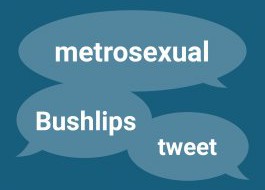
Gap years — essentially a year off before starting freshmen year — are gaining in popularity among American students.
For example, Harvard has seen a 33% increase in the number of students taking gap years. And MIT saw its deferments double between 2009 and 2010, according to CIEE, the world's oldest and largest nonprofit study abroad and intercultural exchange program.
In fact, The White House announced announced earlier this year that Malia Obama will take a gap year before attending Harvard as a member of the class of 2021.
Whether students participate in a service program in the US, travel abroad, or work on a project, there are clear benefits to taking a gap year.
According to Robert Clagett, a former dean of admissions at Middlebury College and former senior admissions official at Harvard, students who take gap years, like Obama, "will frequently be more mature, more focused, and more aware of what they want to do with their college education" when they do enroll in college.
And data reflects his observations: At Middlebury, researchers found that students who took a gap year have shown a "clear pattern" of attaining higher GPA's than those that didn't take gap years, even controlling for the student's performance in high school.
Beyond GPA, students experience positive results.
Gap years allow students a trial period — without schoolwork or the pressures of testing and deadlines — to figure out what they're passionate about.
For example, 98% of students who responded to a 2015 survey from the American Gap Association reported that the time off school helped them develop as a person, and 97% said taking a gap year, "increased their maturity."
Additionally, 84% of respondents said that taking a gap year helped them acquire useful career skills, and 77% said that a gap year helped them find their purpose in life.
To assuage the concerns of parents who may think their kids will never go back to school after taking a gap year, researchers from the American Gap Association found that 90% of students were likely to return to school within a year, and 73% of survey respondents said a gap year increased their "readiness" for college.

Plus, taking a gap year can also increase student's chances of gaining acceptance into better schools.
Abby Falik, the founder of Global Citizen Year — a gap year program that combines service, language learning, and travel with a capstone project — told NPR that 90% of students who complete the program and re-apply to college end up in "more selective" or "better-matched" schools.
Students with gap year experiences, like Nick Boulos, who spent a year in France before attending college, often give them glowing reviews.
"I saw, experienced and learned so much more than I could have ever dreamed to," Boulos told The Portland Press Herald. "Not only this, but it also served as a time for me to mature, see a little bit more of the real world, and really understand the big picture of what life is by seeing so many different cultures and points of view on certain topics."
But while gap years are becoming more popular, many people are still cautious.
Gap years are often viewed as something only wealthier families can afford and that students from poorer backgrounds should just get on with their studies.
Programs like City Year — an Americorps program that places students as teaching assistants in urban public schools — actually pay students a small stipend, however.
Regardless of how she decides to spend her gap year, Obama is sure to benefit from the time off.




